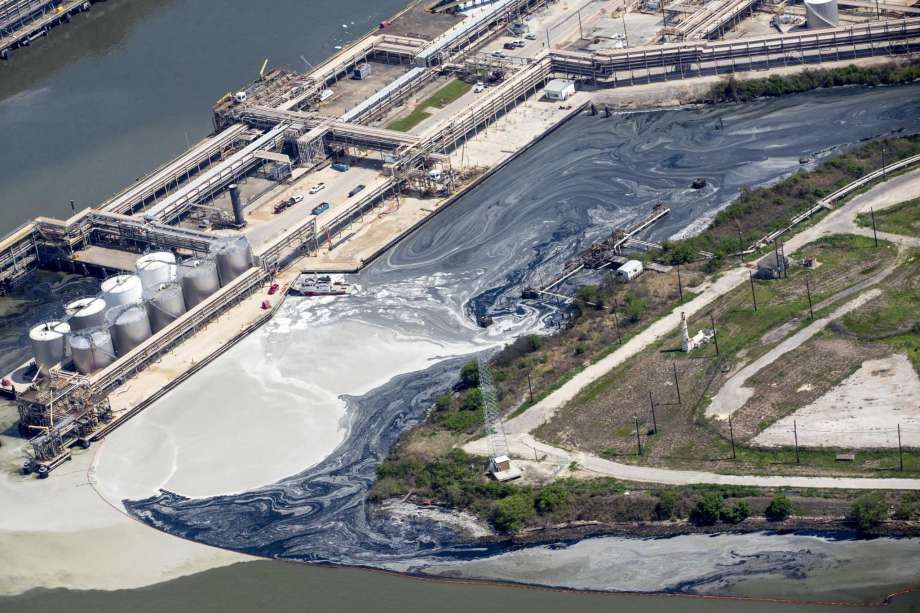
The closure of a portion of the Houston Ship Channel in the aftermath of the days-long Deer Park chemical fire could cost the petroleum and petrochemical sectors an estimated $1 billion in direct and indirect costs and lost revenues, experts said.
Shutting down a major chunk of the Port of Houston for a few days means cutting off access to the biggest port in the nation in terms of foreign tonnage, shipping out petroleum, chemicals, plastics and countless other products in container terminals while receiving large volumes of crude oil and massive container cargo ships.
A few days of closures typically equates to about $500 million in direct costs in delayed shipments and lost supply chain materials for thousands of impacted companies, said Maria Burns, director of the University of Houston’s logistics and transportation program. Another $500 million is estimated to be incurred in indirect expenses from rerouted and canceled shipments and vessel traffic worldwide, she said.
“This is a very busy port and a very busy part of the world,” Burns said, noting the Port of Houston’s importance for the global chemicals, plastics, oil and gas industries.
The port began slowly moving some ships through Monday after being closed for three days. The vessels are being decontaminated as they move through the roughly seven-mile portion of the Houston Ship Channel near the Lynchburg Ferry, extending from Tucker Bayou, where the severely damaged Intercontinental Terminals Co. facility is located, to Houston Ship Channel light 116.
“The Houston Ship Channel is extremely efficient. It’s the miracle of transportation,” Burns said. “When everything works perfectly, no one notices. But when there’s a major accident, it ripples all over.”
This is becoming more true than ever with roughly 80 percent of the nation’s growth in the petrochemical and petroleum sectors occurring along the Texas and Louisiana Gulf Coast, she added.
As of Monday morning, the Houston Pilots reported 31 ships waiting to move into or past the affected area, and 31 ships were waiting to depart.
This article first appeared on the Houston Chronicle – an Energy Voice content partner. For more from the Houston Chronicle click here.